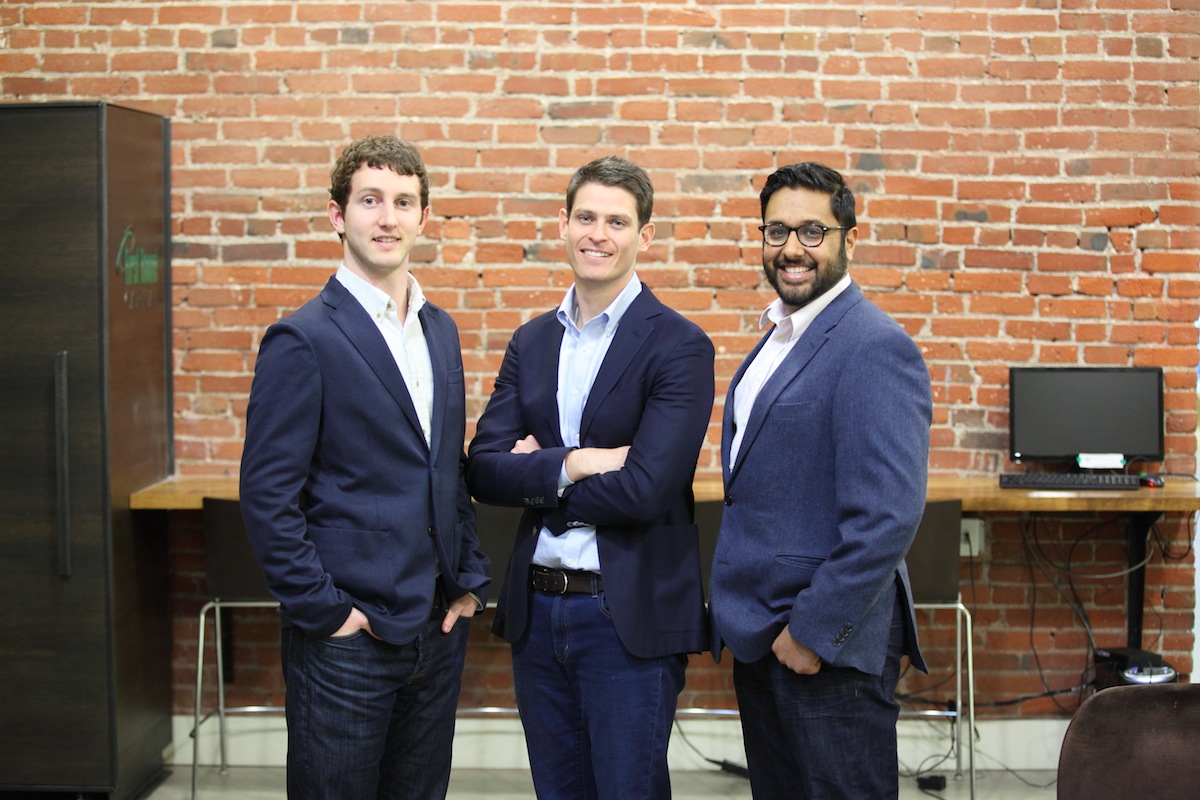Matt Carey and Nimish Shukla are insurance salesmen with what some might call strange tactics. Most of their work is done online. They help you compare prices, even for the retirement plans they’re not selling. And if you’re not the right fit for their product, they’ll turn you away.
Meet Abaris. It just launched yesterday.
Cofounders Carey, 29, and Shukla, 28, who met while getting their MBAs at Wharton, want the startup to be like Kayak.com for a popular new type of retirement plan called deferred-income annuities. Right now, if you want to buy that kind of annuity, which acts more like a pension than a 401(k), you’d have to call several insurance agents to get price quotes and buy the plan through an agent. With Abaris, you can comparison shop and buy your plan online. Abaris sells annuities from carriers like AIG, Lincoln Financial Group and Pacific Life.
Visit Abaris
Abaris, which has raised $450,000 from New York City angel investors in the financial services industry, plus $20,000 from First Round Capital’s Dorm Room Fund, is the latest in a slew of startups that want to shake up the insurance industry, which has largely eluded innovation until recently.
There’s Coverhound, which raised a $14 million Series B, and Zebra, which raised a $4.5 million seed round, both focused on auto insurance. There’s also Oscar, the healthcare insurer that raised an $80 million Series A (Oscar’s user interface looks a lot like that of Abaris). Neighboring startup Leadnomics, which sells leads instead of policies, is thinking about going the policy-selling route, cofounder Zach Robbins told us last month.

The average deferred-income annuity costs $50,000, Carey said. Abaris takes a commission (between 3-5 percent, based on the carrier) on every sale.
When we met late last week, the cofounders emphasized how they wanted to to build trust and credibility with consumers. It also just sounds like Abaris is trying to subvert some of the insurance sales practices that seem, at best, unfriendly to consumers and, at worst, downright shady. For example, the startup sells deferred-income annuities from seven of the 13 carriers that offer them but still shows users how to get relevant quotes from those six other carriers, even though the startup wouldn’t make a commission off that sale.
Also in that realm, but shadier: sales incentives. Lower-rated insurance carriers will offer higher commissions to sales agents as a way to incentivize them to close a deal on a product that’s just harder to sell. Abaris isn’t going that route and only sells annuities from insurers ranked in the top quartile of the country, Carey said.
A big part of their job is also education, since these types of annuities only came on the market in 2011. Abaris has developed a resource center for that purpose.
Here’s one reason the insurance industry isn’t the kind of game you just jump into overnight: there are a lot of regulations involved.
Though the company is focusing its initial sales efforts in the Philadelphia region, Carey and Shukla got licensed as insurance producers in all 50 states and the District of Columbia. They also had to get the company licensed as an insurance seller in Pennsylvania. Those processes involved taking a test and doing a lot of paperwork, said Carey and Shukla, who both worked in the finance industry before going to Wharton.
Carey, who focused on pension alternatives when he worked at the U.S. Treasury Department, actually went to Wharton because of its experts on retirement plans, like Olivia Mitchell. Entering Wharton, he already knew he wanted to build Abaris. He’s since deferred his last semester to speed up the getting-to-market process. He does plan on returning to get his MBA, but launching Abaris seemed more pressing.
“There was less urgency to finish school,” he said, “and more urgency to get to market.”
Carey, Shukla and their third cofounder, recent Penn grad Adam Colombo, will be based in Philadelphia at First Round Capital’s offices until May. After that, they’ll split their time between Philadelphia and New York because of family reasons (Carey’s wife has a job in New York, Colombo is from New York). Meanwhile, Abaris is one of six startups participating in the Philly Startup Leaders Accelerator.
This startup wants to be the Kayak.com for a new type of retirement plan







